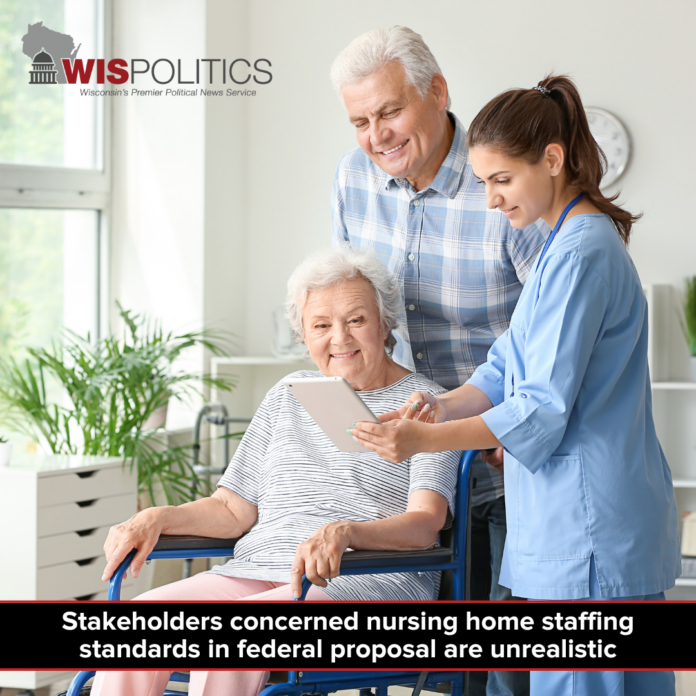Stakeholders are voicing opposition to proposed minimum staffing standards for nursing homes they say are unrealistic considering the state’s workforce challenges and a lack of dedicated funding.
The Biden administration proposed the standards in September in an effort to address staffing issues exacerbated by the COVID-19 pandemic and ensure residents’ safety.
But Rick Abrams, CEO of the Wisconsin Health Care Association and Wisconsin Center for Assisted Living, told WisPolitics the proposal would put more strain on facilities. Abrams said the policy is well-intentioned, but it would put more pressure on current staff and lead to a “devastating impact on morale.”
“We should be doing everything that we can to say thank you to the people who come to work each and every day in our long-term care facilities and do everything we can to retain them,” Abrams said. “A rule such as the one proposed, I don’t believe comes anywhere close to accomplishing that.”
Abrams noted the state is currently in a workforce shortage, saying nursing homes are the only sector in health care that still hasn’t recovered from the pandemic. Dem Gov. Tony Evers recently formed a task force to tackle the state’s health care workforce challenges.
A 2023 Clifton Larson Allen report contracted by the American Health Care Association found only 15% of the state’s nursing homes would meet the staffing requirements.
A Centers for Medicare & Medicaid Services spokesperson told WisPolitics the agency “proposed robust and achievable goals, including flexibilities for hardships, that are informed by the totality of evidence and extensive public input.” CMS is in the process of reviewing comments on the proposed rule.
The policy would require each facility to have at least one registered nurse on site 24/7. It would also establish new minimum staffing requirements of 0.55 hours per resident day for RNs and 2.45 hours per resident day for nurse aides.
The Biden administration has also announced a $75 million investment in scholarships and tuition reimbursement to expand the nursing workforce. But Abrams said a lack of dedicated funding to implement the changes is another problem.
“Our nursing facilities are paid via a fee schedule. So if the nursing facilities’ costs go up but the fee schedule is static, how does the facility make up the difference? That’s a big problem,” Abrams said.
David Mills, managing partner at Milwaukee-based North Shore Healthcare, said patient care, safety and meeting the needs of residents is the number one priority. But he said the staffing recommendations are “very much an overreach,” noting there are standards in place to ensure adequate staffing.
See more at WisPolitics.






